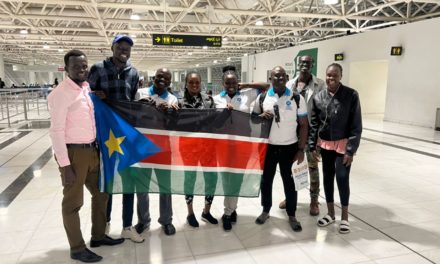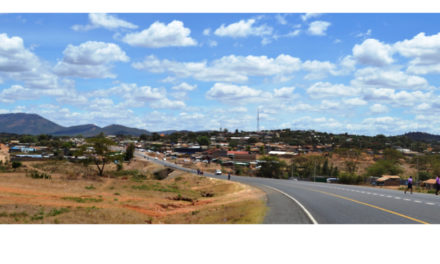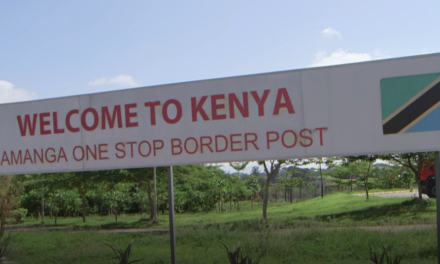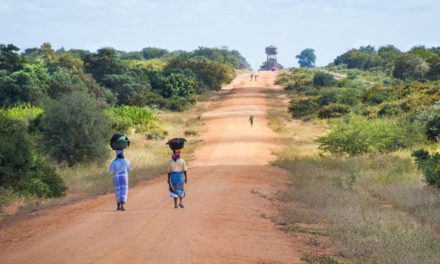
‘Realize you’re the future,’ Bentiu youths told

A youth-led discourse on youth representation and participation in decision-making has empowered young people in Bentiu on their rights.
The two-day training was organized by Action for Conflict Resolution (ACR) – a national civic organization in partnership with Norwegian People’s Aid (NPA).
The issues discussed include the right to education, right to life, right to liberty, and right to protection, among other rights as enshrined in the Transitional Constitution of South Sudan.
The youths were drawn from Bentiu town and others from the Protection of Civilians site camp also discussed how to empower youth by including them in all decision making processes.
Jacob Dhoal Gattany, a member of Bentiu Youth Union said they discussed how it is important for the youths to be involved in decision-making processes.
The revitalized peace agreement signed two years ago gives the youth at least 20 percent in all levels of government.
“We should engage the youth on how they should desist from violent activities such as revenge killings that are common in these areas,” said Mr. Dhoal Gattany.
“We have seen that it is very important for the youth to participate in peaceful means of living. I personally and the other youths also experienced the same, in all these conflicts in South Sudan, youth are the victims,” he added.
Further, he said the youth are the ones being used in fighting at the frontlines, being killed, and are being misused.
“It is not the way they should live. The youths should rise, and realize they are the future of this country. In this regard, we need to be empowered and granted our rights,” Mr. Gattany emphasized.
He further explained that young people should be involved more in decision-making processes both at the state and national government levels.
“We feel that our leaders in the government don’t put first the interests of the youth. But after this training, we now know our rights,” said Gattany.
“This training has opened our eyes. We now know that we should be involved in all activities. Once we are involved, we shall be able to refrain from all violent activities such as cattle raiding, revenge killings, looting, and others,” he added.
Mr. Gattany revealed that the most important lesson he got from the training is the right to life as a universal human right.
“Without attending this training, I would not have known my life is important. But after I received this training, I know my life is important than anything. Now I know this is my right and I should claim it.”
The youths in Unity State say they are now waiting for the formation of state government structures to claim a 20 percent share provided by the revitalized peace agreement for the youth.
“We are now rallying behind the government telling them that the 20 percent must be provided to the youth. This is our right and we are advocating for it. Every youth should know that they have a share in the government.”
However, years of conflicts have destroyed most livelihoods of citizens in the Unity state and other parts of South Sudan.
The private sector where young people are more productive is not blossoming due to unfavorable business environment.
Last month, some youth protested at an oil facility in Bentiu, demanding employment opportunities.
Mr. Gattany said the demonstration was caused by years of frustration over limited employment opportunities.
Another youth leader, Nyang Stephen who also attended the training believes South Sudan’s young population has become more vulnerable to the manipulative tendencies of some politicians.
He attributes this to the high rate of unemployment and insecurity.
“All that we want is having freedom. When you have peace of mind, and you don’t feel a threat, you can engage in other activities such as business knowing your security is guaranteed,” Nyang said.
“We are appealing to our government to ensure there is security so that whatever you are doing for yourself can succeed,” he added.
Mr. Nyang states that due to the training, they now have the right tools to become peace ambassadors.
“We shall go out to share with those who did not attend the training that as young people, we have the right to life and the right to security.”
Nyang explains: “When youth are not engaged in doing constructive work, they will think of doing something evil. We think engaging youth in some activities will keep them busy and it will prevent them from engaging in destructive things.”
For Obudia Michael, a 25-year-old girl, the training enlightened her on her roles in the community.
“With this training, I have realized that I am a responsible person for this community. I should follow someone who tells me let’s go and preach peace instead of following someone who tells me lets go and fight.”
Action for Conflict Resolution’s facilitator, Patricia Kayodi said the public discourse was organized to create a space for interaction between youths living in the displaced people’s camp and those living outside the IDP camp.
It also gives the youths chance to play a role in peace-building and advocating for the rights of their community.
“The youths should also shun hate speech, they should use social media responsibly for expressing their grievances,” Patricia said.
She revealed that there is a need for more training to ensure young people in Unity State are enlightened on their rights.
“I think it is very important that these dialogues are extended to other areas because most people don’t know their rights, they don’t know how to channel their grievances. So I think it is important they are enlightened and educated,” she concluded.
The youth-led discourse on youth representation and participation in decision making attracted 2,067 people, 215 of them female and 1,853 male.
They engaged in public discourse, using sports and cultural festivals as a tool to mobilize and encourage youth to claim their space in state government.
Since February this year, ACR has reached at least 7,480 people, 6620 male and 860 female, mostly young men and women with campaigns on civic rights and against tribalism.























Recent Comments